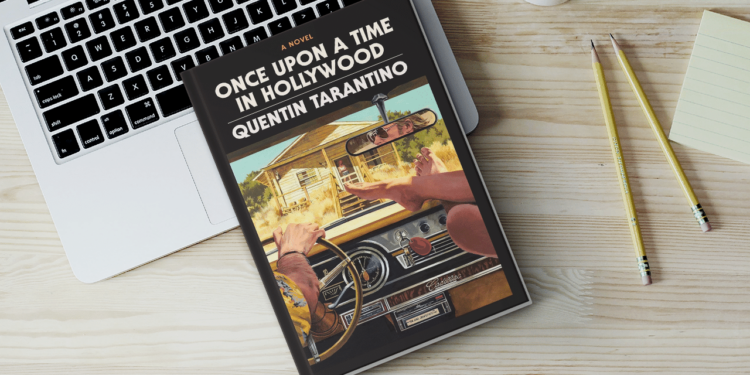Quentin Tarantino is a name that resonates with film enthusiasts all over the world. Known for his unique style, Tarantino has carved a niche for himself in the realm of cinema. Born on March 27, 1963, in Knoxville, Tennessee, Tarantino’s passion for movies began at a young age. Growing up, he would spend hours watching and analyzing various genres of films. Little did he know that these hours of indulgence would shape his future and make him one of the greatest directors of our time.
Quentin Tarantino’s Early Life and Career
Tarantino’s childhood was not a conventional one. Raised by a single mother, he found solace in the world of movies. His love for cinema led him to drop out of high school and pursue a career in the film industry. In his early twenties, Tarantino worked as an usher at a pornographic theater, where he gained knowledge about the art of storytelling and the technical aspects of filmmaking. This experience laid the foundation for his future success.
Tarantino’s breakthrough came in 1992 with the release of “Reservoir Dogs,” a crime film that garnered critical acclaim and established him as a force to be reckoned with. He followed up this success with iconic movies like “Pulp Fiction,” “Kill Bill,” and “Inglourious Basterds.” Tarantino’s films are characterized by nonlinear storytelling, vibrant dialogue, and a fearless approach to violence. His unique blend of genres and unapologetic storytelling captivated audiences and critics alike.
Quentin Tarantino’s Impact on Film History
Tarantino’s impact on film history cannot be overstated. He revolutionized the way movies are made and consumed. With his distinct visual style and unconventional narratives, he challenged the traditional norms of filmmaking. Tarantino’s films not only entertained but also sparked conversations and debates about various social issues. He paved the way for a new wave of filmmakers who were unafraid to push boundaries and experiment with storytelling techniques.
Moreover, Tarantino’s influence extended beyond the realm of cinema. His love for music is evident in the carefully curated soundtracks of his films, which have become synonymous with his name. Tarantino’s use of popular songs from different eras not only enhanced the viewing experience but also introduced a new generation to classic tunes. His ability to seamlessly blend music and visuals has inspired countless directors and continues to be emulated to this day.
Quentin Tarantino’s Love Life and Friendships
Aside from his achievements in the film industry, Tarantino’s personal life has also been a subject of interest. Known for his fiercely private nature, he has managed to keep his love life relatively under wraps. However, it is known that he has been in relationships with prominent actresses such as Mira Sorvino and Uma Thurman. Tarantino’s on-screen collaborations with Thurman, in particular, have been highly praised, and rumors of a romantic relationship between them have persisted over the years.
In addition to his romantic relationships, Tarantino has formed enduring friendships with fellow filmmakers and actors. He has often collaborated with the likes of Robert Rodriguez and Samuel L. Jackson, creating a network of talent that has contributed to his success. Tarantino’s ability to form strong alliances within the industry speaks to his collaborative spirit and the respect he commands among his peers.
Quentin Tarantino’s Financial Success: From Rich to Poor
Despite his undeniable talent and immense success, Tarantino’s financial journey has been a rollercoaster ride. At the peak of his career, he was considered one of the wealthiest directors in Hollywood. However, due to his extravagant lifestyle and love for collecting expensive memorabilia, Tarantino found himself facing financial challenges. Reports suggest that he had to sell off valuable possessions and make budget cuts to fund his projects. This rise and fall in fortune only add to the enigma that surrounds Tarantino’s persona.
Intriguing Tidbits About Quentin Tarantino
Tarantino is known for his attention to detail and meticulous research when it comes to his films. Here are some intriguing tidbits about the acclaimed director:
- Tarantino is a self-proclaimed cinephile and has an encyclopedic knowledge of movies from various genres and eras. His passion for cinema is evident in the countless references and homages that can be found throughout his films.
- Tarantino’s love for foot fetishism is well-documented. Many of his films feature close-ups of feet, and he has even been accused of having a foot fetish. Whether intentional or not, this recurring motif adds to the unique visual language that defines his movies.
- Tarantino has a fascination with violence and has been criticized for the excessive use of it in his films. However, he defends his artistic choices, arguing that violence is an integral part of storytelling and that he portrays it in a stylized manner rather than glorifying it.
- Tarantino is known for his love of dialogue. His films are filled with memorable one-liners and engaging conversations that have become iconic. His ability to craft compelling dialogue has set him apart from other filmmakers and earned him a reputation as a master wordsmith.
- Tarantino has expressed his desire to retire after directing ten films. With nine films already under his belt, fans eagerly await his next project, which may mark the end of an era in cinema.
Exploring Quentin Tarantino’s Best Quotes
Quentin Tarantino’s films are not only visually captivating but also filled with memorable quotes that have become part of popular culture. Here are some of his best quotes:
- “I’m not interested in movies that are just entertaining. I want to provoke an emotional response, make you question your values, and take you on a journey.”
- “I steal from every movie ever made.”
- “Violence is one of the most fun things to watch.”
- “I’m not a Hollywood filmmaker; I’m an independent filmmaker who works in Hollywood.”
- “Movies are my religion, and God is my projectionist.”
These quotes offer a glimpse into Tarantino’s creative mind and his philosophy as a filmmaker. They reflect his passion for storytelling and his dedication to pushing boundaries.
Main Places Where Quentin Tarantino’s Comics are Set
In addition to his work in film, Tarantino has also ventured into the world of comics. His comic series, titled “Django Unchained” and “The Hateful Eight,” are set in the same universe as his films. These comics expand upon the stories and characters introduced in the movies, providing fans with new insights and adventures. The main places where Tarantino’s comics are set include:
- The Wild West: Tarantino’s love for Westerns is evident in his films, and it extends to his comics as well. The Wild West serves as a backdrop for many of his stories, allowing him to explore themes of justice, revenge, and redemption.
- Post-Civil War America: “Django Unchained” takes place in the aftermath of the Civil War and delves into the issue of slavery. Tarantino’s comic adaptation expands upon the story of Django, a former slave turned bounty hunter, as he seeks to rescue his wife from a cruel plantation owner.
- The Snowy Mountains: “The Hateful Eight” is set in a remote cabin in the snowy mountains of Wyoming. The comic adaptation delves into the tense dynamics between a group of strangers trapped together during a blizzard. As the characters’ true colors are revealed, violence ensues, and trust becomes a scarce commodity.
These settings not only capture the essence of Tarantino’s films but also provide a rich backdrop for the narratives in his comics.
Quentin Tarantino’s First and Last Comics
Tarantino’s foray into the world of comics began with “Django Unchained,” which was released in 2012. This comic adaptation of his film of the same name was well-received and opened the doors for future collaborations between Tarantino and the comic medium. As of now, “Django Unchained” remains Tarantino’s first and only completed comic series.
While Tarantino’s last comic remains to be seen, fans eagerly await his next venture into the world of sequential art. With his knack for storytelling and eye for visual aesthetics, Tarantino’s comics are sure to leave a lasting impact on the medium.
Quentin Tarantino’s Comics in Order
As of now, Quentin Tarantino has only released one comic series, “Django Unchained.” The comic serves as a companion piece to his film of the same name and expands upon the story and characters introduced in the movie. While there are no other comics currently available, Tarantino’s fans can look forward to future releases that may delve into other aspects of his filmography.
The Screen Adaptation of True Romance
One of Tarantino’s lesser-known works is the screenplay for “True Romance.” Directed by Tony Scott, the film tells the story of a young couple on the run after stealing drugs from the mob. While Tarantino did not direct the film himself, his unique voice and storytelling style are evident throughout. “True Romance” showcases Tarantino’s talent for crafting engaging narratives and complex characters, making it a must-watch for fans of his work.
Other Artists Who Inspired Quentin Tarantino
Tarantino’s films are often hailed for their originality, but the director himself is not shy about acknowledging the artists who have influenced his work. Some of the notable figures who have inspired Tarantino include:
- Sergio Leone: Known for his spaghetti Westerns, Leone’s films have had a profound impact on Tarantino. The use of close-ups, wide shots, and dramatic music in Leone’s films can be seen echoed in Tarantino’s own work.
- Jean-Luc Godard: Tarantino has often cited Godard as one of his favorite directors. Godard’s innovative approach to filmmaking and his use of jump cuts and nonlinear narratives have been a source of inspiration for Tarantino.
- Brian De Palma: De Palma’s films, particularly “Scarface” and “Blow Out,” have influenced Tarantino’s visual style and his love for suspenseful storytelling. The use of split-screen and long tracking shots in De Palma’s films can be seen in Tarantino’s work as well.
- Martin Scorsese: Tarantino has expressed his admiration for Scorsese on multiple occasions. Scorsese’s films, such as “Goodfellas” and “Taxi Driver,” have had a profound impact on Tarantino’s storytelling techniques and his exploration of morally ambiguous characters.
These artists have shaped Tarantino’s artistic sensibilities and have contributed to the unique blend of genres and styles that define his films.
5 Writers and Comics to Read if You Liked Quentin Tarantino
If you’re a fan of Quentin Tarantino’s films and are looking for similar storytelling styles and themes, here are five writers and comics to explore:
- Frank Miller: Known for his gritty and stylized approach to storytelling, Miller’s works like “Sin City” and “The Dark Knight Returns” are reminiscent of Tarantino’s films. Both artists share a penchant for exploring the dark underbelly of society and creating morally complex characters.
- Elmore Leonard: Leonard’s novels, such as “Get Shorty” and “Out of Sight,” capture the same blend of crime, humor, and dialogue that defines Tarantino’s films. Leonard’s sharp wit and knack for creating memorable characters make his works a perfect match for Tarantino fans.
- Ed Brubaker: Brubaker is a comic book writer known for his noir storytelling and complex characters. His works, such as “Criminal” and “Fatale,” share thematic similarities with Tarantino’s films, including a focus on crime, revenge, and flawed protagonists.
- Quentin Tarantino’s “Django Unchained” (Comic): For fans of Tarantino’s films who want more of his storytelling, the comic adaptation of “Django Unchained” is a must-read. The comic expands upon the story and characters introduced in the film, offering a fresh perspective on Tarantino’s vision.
- Robert Rodriguez’s “Sin City” (Comic): Directed by Robert Rodriguez and based on Frank Miller’s graphic novels, “Sin City” captures the same gritty and stylized aesthetic that Tarantino fans will appreciate. The comic series delves into the dark underbelly of a crime-ridden city, much like Tarantino’s films.
Buying Guide and Gift Ideas for Quentin Tarantino Fans
If you or someone you know is a Quentin Tarantino fan, here are some buying guide and gift ideas to consider:
- Blu-ray Collection: Tarantino’s films are visual spectacles, and owning a Blu-ray collection allows fans to appreciate the stunning cinematography and meticulous attention to detail. The collection should include all of his iconic films, from “Pulp Fiction” to “Once Upon a Time in Hollywood.”
- Soundtrack Vinyls: Tarantino is known for his curated soundtracks that seamlessly blend music and visuals. Gift the Tarantino fan in your life with vinyl records of their favorite soundtracks, such as “Pulp Fiction” or “Kill Bill,” for a nostalgic and immersive listening experience.
- Movie Posters: Decorate your space with iconic movie posters from Tarantino’s films. From the striking “Reservoir Dogs” poster to the vibrant “Kill Bill” artwork, these posters serve as a tribute to the director’s unique style and make for a visually captivating gift.
- Quentin Tarantino Books: There are several books available that delve into the life and work of Quentin Tarantino. From biographies to in-depth analyses of his films, these books provide valuable insights for fans who want to learn more about the director’s creative process and his impact on cinema.
- Tarantino-Inspired Clothing: Show your love for Tarantino’s films with clothing inspired by his iconic characters and quotes. T-shirts featuring memorable lines or images from his movies can be a fun and stylish way to express your admiration for the director.
Conclusion: Quentin Tarantino’s Legacy in Film History
Quentin Tarantino has had a profound impact on the film industry and has left an indelible mark on popular culture. His unique writing style, quirky characters, and non-linear storytelling techniques have made him one of the most important filmmakers of his generation, and his influence can be seen in the work of many contemporary filmmakers. Whether you’re a fan of his films or comics, there is no denying the lasting legacy of Quentin Tarantino.










